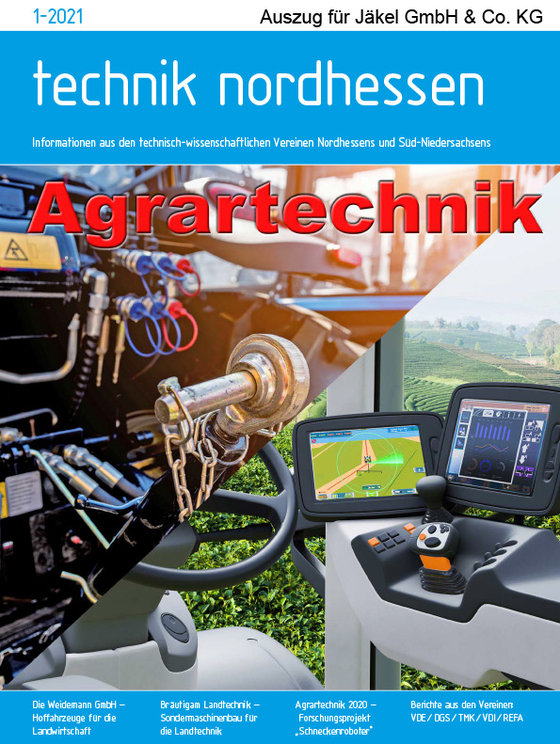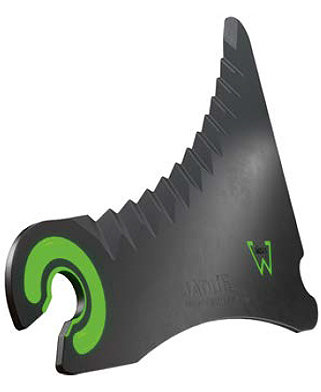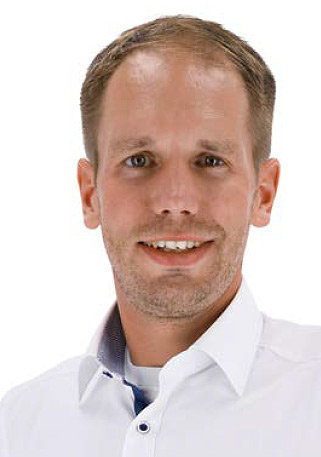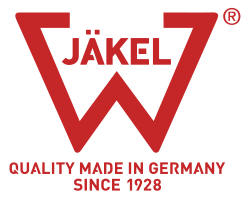Report from the newspaper "Technik Nordhessen" focusing on "Agricultural technology": JÄKEL in Diemelstadt – Cutting-edge and innovative for more than 90 years!

In the spirit of the motto "Passion is our drive", the company is now in its third family generation and is successfully driven forward by the current managing directors Frank and Udo Jäkel. The company's unique selling proposition is that it covers the entire value-added chain from product development to toolmaking to final inspection and the corresponding vertical range of manufacture, giving it an enormous lead in terms of know-how.
With its one hundred and twenty well-trained employees, state-of-the-art technologies and its commitment to two locations in Diemelstadt covering a total of 12,000 m2 of production area, the company produces three million machine knives and wear parts per year. Back in 1911, Prof. Georg Schlesinger of the Technical University of Charlottenburg taught his students: "The dividends are on the cutting edge of steel." This quote still applies today to the company's focus and its core competencies: Material development and wear protection. The reason for this is that the wide variety of conditions in which machine knives are used results in a wide variety of product designs.
For example, sandy soils are more abrasive and stony soils require higher toughness of the machine knives. And even the weather plays a role in wear behavior. Consequently, "the ideal knife" can neither be developed nor is it available on the market. It is a matter of designing individual and customer-specific knives, which are already designed in the early development phase with the respective OEM customer. Drawing on its experience, Jäkel has succeeded in setting an industry-wide benchmark for original equipment manufacturers: The "JADU-Hl" is a specially developed hybrid special steel grade with optimum material properties for highly stressed machine blades and wear parts in modern agricultural technology.
This patented alloy was developed in close collaboration with a leading European steel manufacturer and is melted exclusively for Jäkel. This premium product features an optimum ratio in terms of hardness, wear resistance and toughness.
Further component design can be divided into four product lines to meet specific requirements. Images from left to right:
JADU ECO, JADU PRIMO, JADU ZONA, JADU STRATUM.

|

|

|

|
The "JADU Primo" line is still the most frequently produced variant in knife production and it often forms the basis for the other product lines. Here, the material is first heated to around 800 to 950 °C and then quenched in oil, polymer, water or indirectly to produce a hardened structure. The properties of the subsequent knife are determined to a considerable extent by the magnitude of the temperature difference and the speed of cooling. The components are then tempered to achieve even greater toughness. These procedures demand an enormous amount of expertise in order to be able to calculate the final properties of the knife in advance.
 The picture depicts a fully automated production line for hot forming of "JADU-Primo" products. During the past year, Jäkel invested in a new laser system for hardening and coating in order to expand its core competence and extend its range of wear protection products in the "JADU Zona" and "JADU Stratum" product lines. The fully automated laser cell is not an "off-the-shelf system", it is individually tailored to the specific needs of the company. This allows partial areas of machine knives to be hardened or provided with special wear protection within the shortest possible process times.
The picture depicts a fully automated production line for hot forming of "JADU-Primo" products. During the past year, Jäkel invested in a new laser system for hardening and coating in order to expand its core competence and extend its range of wear protection products in the "JADU Zona" and "JADU Stratum" product lines. The fully automated laser cell is not an "off-the-shelf system", it is individually tailored to the specific needs of the company. This allows partial areas of machine knives to be hardened or provided with special wear protection within the shortest possible process times.
The wear protection layer consists of specially developed hard material alloys with precisely adjustable proportions of tungsten carbides. In practice, such coatings lead to self-sharpening effects for permanently sharp cutting edges and achieve maximum wear resistance.
 Jäkel presented another lnnovation in 2019 at the industry's leading global trade fair "Agritechnica". The first product from the new, innovative "JADU-Eco" product line is a loader wagon knife with a material thickness of four millimeters in the basic body, whereas standard loader wagon knives today have a material thickness of five to six millimeters. Specific reinforcing elements, such as ribs or beads, can be incorporated to thicken or reinforce heavily stressed areas of the four-millimeter-thick knife as required. Figure 3 depicts an example of a knife with the reinforced areas shown in green. This makes it possible to create a material thickness of five millimeters in the area of the knife holder in order to increase mechanical stability without having to use additional materials.
Jäkel presented another lnnovation in 2019 at the industry's leading global trade fair "Agritechnica". The first product from the new, innovative "JADU-Eco" product line is a loader wagon knife with a material thickness of four millimeters in the basic body, whereas standard loader wagon knives today have a material thickness of five to six millimeters. Specific reinforcing elements, such as ribs or beads, can be incorporated to thicken or reinforce heavily stressed areas of the four-millimeter-thick knife as required. Figure 3 depicts an example of a knife with the reinforced areas shown in green. This makes it possible to create a material thickness of five millimeters in the area of the knife holder in order to increase mechanical stability without having to use additional materials.
The decisive advantages of this knife are: Its lightweight design results in a weight saving of more than twenty percent. Furthermore, the blade requires less drive power, which leads to lower fuel and power consumption. But the operating times or intervals between regrinding are also extended, while the time required for regrinding is also reduced.
The Eco knives are also backward compatible and can be used in existing loader wagon series. Successful attempts have already been made in this year's field trials to transfer the "JADU-Eco" technology to other knives. Numerous other developments are being conducted jointly in research and cooperation projects with universities, technical colleges and industrial partners. These projects range from theoretical research to application-oriented research. The research results often lead to innovative business ideas and models that ensure the company's competitiveness in national and international markets. To further expand its network activities, Jäkel is also a member of the German Engineering Federation (VDMA).
The association has around 3,300 members, making it the largest industry network in Europe. As part of the overall process approach, responsible use of all resources in the company also plays an extremely important role at Jäkel. Whether this involves employees, investments in new technologies or in the environment: Assuming responsibility is a sign of strength and the will to make a difference, to change and to protect.
For example, the use of the large photovoltaic systems alone, as well as the installation of the latest LED technologies and the use of heat recovery systems, saves more than 200 tons of CO2 per year.
 Dr.-lng. Stefan Schwarte, M.Sc. is a trained technical draftsman and subsequently studied mechanical engineering at the University of Applied Sciences Südwestfalen in Soest (Diploma) and at the University of Bolton in England (Master).
Dr.-lng. Stefan Schwarte, M.Sc. is a trained technical draftsman and subsequently studied mechanical engineering at the University of Applied Sciences Südwestfalen in Soest (Diploma) and at the University of Bolton in England (Master).
Following his studies, he worked at the University of Kassel as a doctoral student and head of the "Machining Technology" department. His doctoral thesis deals with the development of a cutting tool for the production of investment castings. He joined Jäkel in 2018 as head of research and development and has been authorized signatory since this year. Dr. Schwarte was already able to gain a lot of experience in agricultural engineering during his studies: In addition to extensive practical experience in agriculture, he wrote his diploma and master's thesis on the development of carbide-tipped soil cultivation tools, which has now become state of the art throughout the industry.
Copyright notice:
Report: VDI Verein Deutscher lngenieure e.v. Nordhessischer Bezirksverein e.v. Title page: © Picture collage from left: romaset-/kinwun-stock.adob


